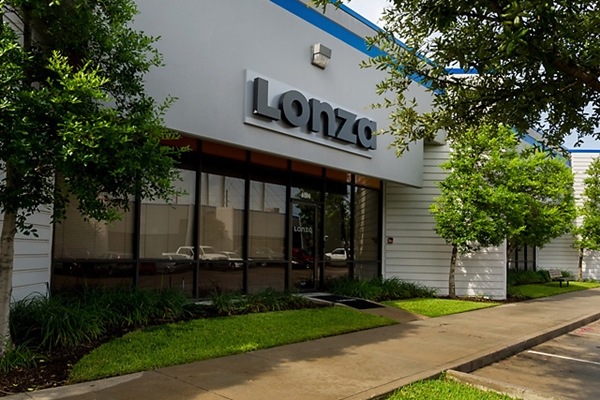12 September 2016. Techniques from academic research for developing synthetic viruses to deliver gene therapies are being licensed for commercial production and distribution. Lonza Houston Inc. is licensing processes for generating synthetic adeno-associated viruses from the lab of Luk Vandenberghe, an ophthalmology professor at Massachusetts Eye and Ear in Boston, but financial terms were not disclosed.
Lonza Houston is a division of Lonza Ltd., based in Basel, Switzerland, a supplier of biotechnology components including stem cells and viruses for therapeutic delivery. The company’s Houston, Texas facility specializes in producing viral carriers for gene therapies, including adeno-associated viruses. hardy and ubiquitous viruses in humans and animals that cause infections, but with few, if any, symptoms. Lonza is building a new virus and stem cell manufacturing facility in nearby Pearland, Texas, expected to be operational by the end of 2017.
Vandenberghe and colleagues at Mass. Eye and Ear, a teaching hospital of Harvard Medical School, developed techniques for creating synthetic adeno-associated viruses, known as Anc-AAVs, with computer-guided design methods that anticipate evolutionary transformations of viral particles and improve their capabilities. These artificial viral particles then carry human genes as therapies for inherited diseases of the retina, and disorders in other organs, including spinal muscular atrophy and hemophilia.
One of Vandenberghe’s synthetic viruses, code-named Anc80, was licensed in May 2016 to biotechnology company Selecta Biosciences in Watertown, Massachusetts. Selecta licensed Anc80 to deliver the company’s drug candidate for rare genetic diseases, such as the metabolic disorder methylmalonic acidemia, where even mild immune reactions to natural viruses would be harmful or where multiple treatments may be needed.
Under the agreement, Lonza receives an exclusive option position to Anc-AAV technology for future commercial licensing, while Mass. Eye and Ear retains all rights to the technology in very rare disorders, and other commercial and academic rights. Lonza will fund research at Mass. Eye and Ear to discover and develop new gene transfer reagents, to improve on limitations in current adeno-associated viruses, including tissue and immune responses, and manufacturing yields.
“In this era of personalized medicine, the partnership with Lonza is unique, and potentially very effective,” says Vandenberghe in a joint statement. “We believe this concept will bring innovative gene therapies to patients in a more efficient and expedient way, and that it will increase access to enabling gene therapy technology to unlock treatment for diseases of unmet need, including those affecting vision and hearing.”
Read more:
- Gene Therapy Designed for Muscle Wasting Disease
- Stem Cells, Gene Therapy Produce Replacement Joint Cartilage
- Pricing Factors Proposed for Gene Therapies
- Biogen, UPenn Partner in $2B Gene Therapy Research Deal
- Multiple Myeloma Gene Therapy Trial Underway
* * *


 RSS - Posts
RSS - Posts
You must be logged in to post a comment.